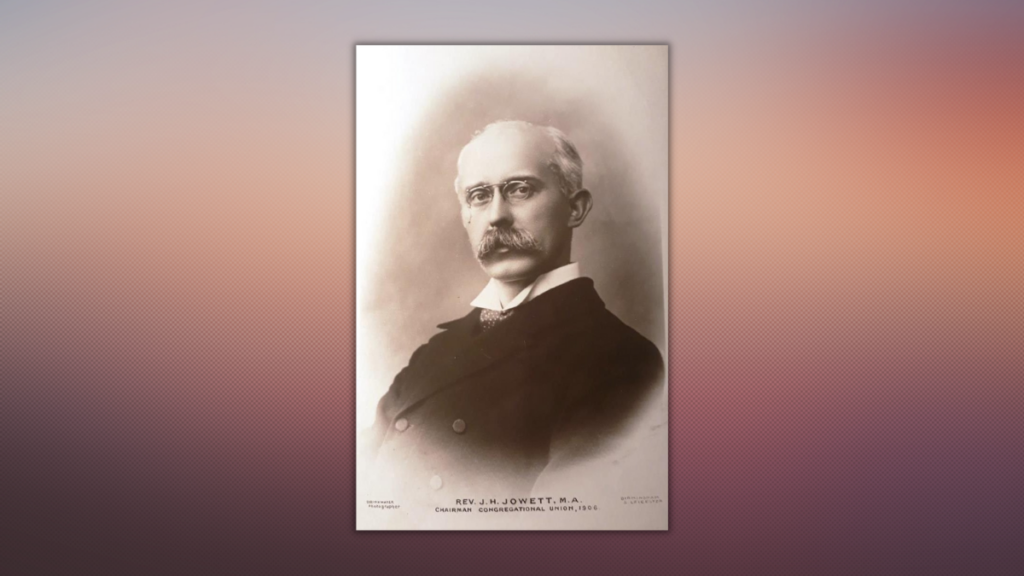By Mark MacDonald
BeKnownforSomething.com
As technology advances, artificial intelligence is becoming increasingly relevant in many fields, including pastoral ministry.
Pastors can leverage AI with the assistance of the free AI content generator ChatGPT, which is found at chat.openai.com. They can use it to enhance their messages and potentially reach wider audiences while being mindful of ethical concerns.

The potential of AI in pastoral work
With an AI language model (like ChatGPT, Bard or Jasper), pastors can gain assistance in generating high-quality sermons, as well as other content that is engaging, inspiring and informative.
The content can be shared from the stage or on social media, posted on a church website or used in other ways to reach more people.
It can also help you redeem time by assisting in creating, researching and editing the content quite quickly. This allows more time for ministry.
Reaching a wider audience
By utilizing high standards of search engine optimization, AI can help pastors reach a wider audience by making their content more accessible to those who might not have been reached otherwise, all by utilizing the power of Google.
You can get help from AI for keyword research, titles, outlines and even real-world stories that will help get the attention of many in your audience.
Posted online, it can expand your reach to a greater community.
Saving time and energy
AI can help pastors stay organized, complete research tasks for support material and stay on top of ministry tasks by automating certain administrative tasks and providing reminders.
AI can also suggest how to improve and edit your content. Some AI even has the ability to rework content for better understanding or changing the tone.
It also helps with alliteration and symmetry in your outline.
Considering ethical questions
It’s essential to be cautious when creating and utilizing AI-generated content. Ethical considerations must be taken into account, like ensuring the data used to train the AI algorithms is not biased and that the AI-generated content does not infringe on intellectual property rights.
You also need to use the same skepticism you would with any research content.
Additionally, it is crucial to be transparent about the use of AI-generated content and provide proper attribution of sources used.
Ultimately, strive to use AI technology in ways that are both effective and ethical, avoiding any unintended negative consequences. One note: Never use AI content unless it’s checked thoroughly for accuracy. AI does not have a belief system; it just “learns” from web content (which could be incorrect).
Maintaining human connection and empathy
Pastors should use AI as a tool to supplement their content, rather than as a replacement for it, as they make sure to maintain a human connection with their congregations. Use AI as a research assistant to save you hours of preparation time so you have more time for interpersonal interactions.
Mitigating potential bias
As pastors work with AI models that have been trained on a diverse range of data, pastors must check all AI-generated content against Scripture and beliefs.
AI can be a valuable addition to any pastor’s ministry toolkit, helping save time and energy while still ensuring the message is effective, Scriptural and engaging.
However, pastors must be mindful of the ethical implications of using AI and take steps to ensure that their use of the technology aligns with their values.
EDITOR’S NOTE — Artificial intelligence is not new, having been part of our lives since the introduction of Siri, Alexa and chatbots, just to name a few examples. But the widespread use of ChatGPT has generated some interesting discussions, not only in the tech world but also in business, education and ministry. Are you a pastor or ministry leader using ChatGPT or other AI tools in research, sermon prep, personal Bible study, teaching or other ways? Are you an educator grappling with how the technology will impact your teaching or your students’ work? We would love to hear about your experiences, good and bad. Send your thoughts and questions to news@thealabamabaptist.org.
Working together as believers
Unity is woven into creation, from delicate environmental ecosystems to the harmony of the human body’s many interdependent systems.
Many moving parts, working in concert, is what gets us up in the morning, gets us to work in the morning and gets us home at night.
When just one of these parts is not working; when there is a discordant note in our day, we feel it. A pain in our joints. An oil leak in the minivan. A natural disaster in our town.
The Bible speaks of this kind of togetherness when it comes to the way Christians are called to relate to each other.
When we think of Christian unity, perhaps we don’t often envision the seamless cohesion of an Olympic rowing team.
Instead, unity hits our ears and sounds like something sappy and sentimental like a bunch of religious people holding hands in a weird circle around a campfire. Or like the formulaic schmaltz of Hallmark movies.
However, togetherness is an essential part of what it means to be a follower of Jesus. … [It] is not something we create, but something God has already done in Jesus.
Whether we recognize it or not, we are unified with Christ and unified with the people of God.
This is what is symbolized at our baptism as we are plunged into the waters of death and as we rise again in newness of life.
We are in Christ and we are also plunged into the worldwide communion of saints in heaven and in earth.
Excerpt from “Agents of Grace: How to Bridge Divides and Love as Jesus Loves” by Dan Darling, director of the Land Center for Cultural Engagement at Southwestern Baptist Theological Seminary.
When we allow the lust of the flesh or the world to entice us, we have begun the downward dive of disobedience.
Pastor Bobby McKay
The Baptist Paper Sunday School commentary
Discipleship happens best when we’re in a relationship with other believers. The goal of ongoing groups, to make disciples, flows directly from Jesus’ command to His church in the Great Commission.
Ken Braddy
Director of Sunday School
Lifeway Christian Resources
God has chosen in His sovereignty to take students prematurely who were sold out to Jesus. After their passing, God sparked a revival in the hearts of students at our church and in this community.
Pastor Robby Gallaty
Long Hollow Baptist Church
Hendersonville, Tenn.
We have to use everything at our disposal to make sure people get to hear the gospel in a way they understand.
DeAndre’ Burns
General manager
Flatline Movement
We want to feed the sheep, and this is our little corner of His Kingdom where we get to, hopefully, create things that encourage the hearts of believers to remember who they are in Christ, remember what He’s done, remember what He’s coming to do and to implant the Word of God in people’s hearts so they would sing it.
Shane Everett
Shane & Shane
Don’t let anyone’s definition of you limit what God has called you to do. It’s not necessarily about belief in yourself, it’s about belief in the One who created you.
Amy Hacker
the-scroll.com
“Great small things”
We learn from doing, and we learn from each other.
Ken Allen
Director, office of LeaderCare
Alabama Baptist SBOM
Chitchat
@hockster1971
You may not know it, but your church services attendance encourages your pastor and fellow church members!
Jesus observed the difference between a disciple and a would-be disciple. He saw some “fall away,” some become “false prophets” and some people whose love grew “cold.” A few latched on to Him, but they didn’t stick. They didn’t lose their salvation — they never had it.
What was the proof in the pudding to Jesus? “But the one who endures to the end, he will be saved” (Matt. 24:13). God appeals to all believers to serve Him. He doesn’t care how pretty you are, whether you’re the smartest cookie in the jar, or how fast you move. He just wants you to get the job done.
Darryl Wood
Vincent, Ala.
via Facebook
@AlistairBegg
“Are you wholly convinced that you need the help of God to do what He has called you to do?”
—Colin Smith
@BillyGraham
“God promises no easy life or days without troubles, trials, difficulties, and temptations. He never promises that life will be perfect. He does not call His children to a playground, but to a battleground.” #BillyGraham
@kmmebangs
When a father in the faith passes, it causes me to wonder what that first moment — seeing Jesus face to face — hearing, “Well done, good and faithful servant. Enter into the joy of the Lord” is like. I can only imagine the celebration. Thank you, Pastor [Tim] Keller. #heishome
@NationalWMU
What is God calling you to do? Don’t be afraid! Remain in Him and go forth with confidence knowing He has already given you the victory!






Share with others: